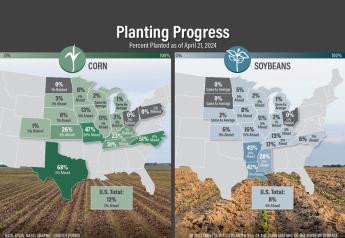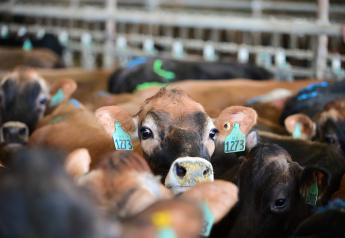After 100-Year Drought, Texas Breaks Ground on New Vet School
Texas Tech Vet School 09/19/19
Weston Cleveland isn’t a complacent college student on some journey to fulfill a dream. After a couple years into his college stint, he realized his major wasn’t a good fit.
“I was majoring in Animal Science with an emphasis in business, which is a lot of economics classes, there's a lot of math involved in that,” said Cleveland, who is a senior at Texas Tech, majoring in Animal Science with an emphasis in pre-vet. “It’s not that I’m not good at math, I just don't enjoy it.”
Cleveland is from East Texas, but ventured to the West Texas to major in animal science. He loved the animal sciences portion, just not the business emphasis, and decided to make a switch.
“I've been working at Texas Animal Feeders in South Texas for the past seven years or so, and just being able to sit on horseback everyday riding pins, checking calves, checking cattle, things like that, I enjoyed it,” he said.
Cleveland switched his emphasis to pre-vet, now cramming four years of coursework into two. It’s a switch that’s not uncommon today, as the interest in pre-vet is gaining momentum at Texas Tech.
“The number of pre-veterinary students in the building have more than doubled in the last four years,” said Guy Loneragan, dean of School of Veterinary Medicine, Texas Tech University.
That interest sparked a major change, with Texas Tech University accomplishing a feat that was first brought forth 50 years ago. Texas Tech University broke ground on a new School of Veterinary Medicine on Sept. 19, the first time Texas has broken ground on a new vet school in a century.
“It's been in the works for five decades,” said Loneragan. “It's a huge honor, but it's also an awesome responsibility.”
That responsibility is growing, as Loneragan will be the dean of Texas Tech’s first School of Veterinary Medicine.
“We have a growing demand for veterinarians,” he said. “We have over employment of veterinarians in Texas, and so we're bringing in the vast majority of our workforce every year to the state. And we need to correct that.”
Loneragan says Texas licenses 500 to 550 veterinarians every year in the state, and the current sole vet school, Texas A&M, only produces 130 graduates each year.
Loneragan says that means the current sole program in the state only meets 25% of the current demand. It’s not just the over-employment situation; there are also more students who aspire to be veterinarians. One of those students is Cleveland.
“Right now, the plan is to apply to Texas A&M and then, for peace of mind, I'm going to apply it to Colorado State, Oklahoma State and University of Florida.”
Cleveland says the issue for him is the cost of out-of-state tuition.
Today, a Texas resident who goes into Texas A&M’s School of Veterinary Medicine will pay $25,000 a year. If a student goes out of state, the cost more than doubles.
The financial strain, along with the growing need for rural veterinarians in Texas, helped Texas Tech build its case to the State Legislature.
“We put our case forward, and we demonstrated the need,” said Loneragan. “The legislature saw that and appropriated the startup funds that we requested, they provided some language that directed us to do what we need to do to start the program. So, we have firmly moved from planning and development into implementation.”
The implementation started this week, as Texas Tech broke ground on the new School of Veterinary Medicine, which will call Amarillo, TX home.
“We are working very hard to welcome the first class in the fall of 2021,” said Loneragan.
A historic moment that can’t come soon enough for impassioned future veterinarians, like Cleveland.
“The second Texas Tech’s application opens, I think I'm going to send it within the first 30 minutes,” said Cleveland.
Cleveland wants to find work in a rural area, which is an area Texas Tech plans to cater its curriculum and training.
“It really is a liberating to understand and know that we can have a much narrower focus being the second program in the state, and our focus is small agricultural and regional communities all across Texas,” said Loneragan.
Having the freedom to adjust its curriculum will allow Texas Tech to rethink the students and programs it attracts.
“The curriculum that we're designing for the students, and all of the stakeholders that we're engaging, is a more narrowly focused program from start to finish,” he said.
For Cleveland, taking part in such a historic moment in Texas would be monumental.
“It'd be absolutely groundbreaking to be the very first class,” he said. “We've been anticipating this Vet School, we’ve needed this school, and just to know how much change it’s going to bring to west Texas and rural communities, and how much is going to help farmers and ranchers all over, is amazing.”
The new venture could open doors to address a growing need for more veterinarians in the rural landscape across the Lone-Star state.
“I think you can't even put into words how symbolic it's going to be,” said Cleveland. “To see how much good it's going to do. I think that's priceless. You can't label it. You can't kind of anticipate how much success is going to come from it.”







